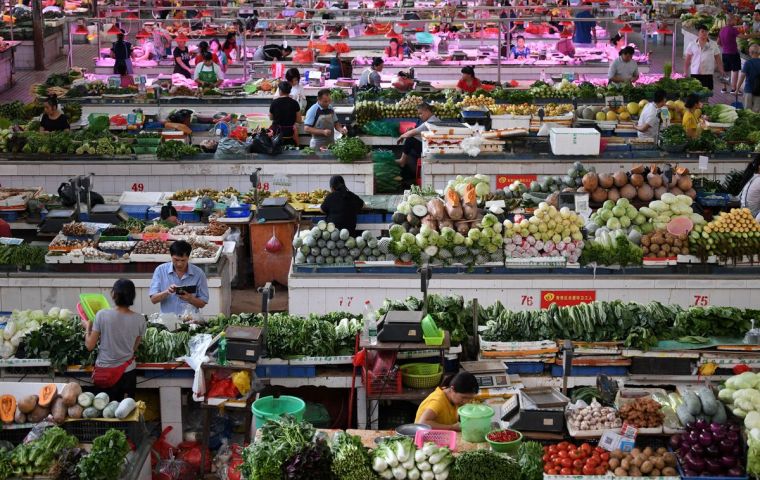MercoPress. South Atlantic News Agency
FAO Food Price Index dipped in October pushed by dairy, meat and vegetable oils
 The Dairy Price Index led the overall decline, slipping 4.8% from the previous month and 34% below the peak reached in February 2014
The Dairy Price Index led the overall decline, slipping 4.8% from the previous month and 34% below the peak reached in February 2014 International food commodity prices dipped in October, as falling dairy, meat and vegetable oils prices more than offset a surge in sugar prices, the United Nations said. The FAO Food Price Index, a measure of the monthly change in international prices of a basket of food commodities, averaged 163.5 points in October, down 0.9 percent from September and 7.4 percent below its level a year earlier.
The FAO Dairy Price Index led the overall decline, slipping 4.8 percent from the previous month and 34 percent below the peak reached in February 2014. The weaker prices reflect increased export supplies across all major dairy products, especially from New Zealand.
The FAO Meat Price Index declined 2.0 percent from September, with ovine, pig, bovine and poultry meat all posting drops due mostly to abundant export supplies.
The FAO Vegetable Oil Price Index fell by 1.5 percent, its ninth consecutive monthly drop, to reach its lowest level since April 2009. The latest slide was mostly driven by sluggish global import demand for palm oil and large inventories held by the commodity's major exporting countries. International soy oil prices increased slightly.
The FAO Cereal Price Index rebounded, rising 1.3 percent from September, mostly due to firmer maize quotations from the United States of America. Rice prices, by contrast, fell, partly influenced by currency movements weighing on Japonica and fragrant varieties.
The FAO Sugar Price Index surged 8.7 percent, mostly as a result of negative climate-related production prospects in India and Indonesia as well as indications of an increasing share of Brazil's sugarcane output being used to produce ethanol.




Top Comments
Disclaimer & comment rulesCommenting for this story is now closed.
If you have a Facebook account, become a fan and comment on our Facebook Page!